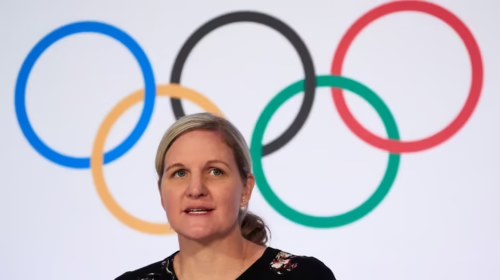The Zimbabwe Football Association (ZIFA) is pushing for a constitutional amendment mandating presidential candidates to possess a minimum of five O-Level passes. This proposal has garnered attention, particularly regarding its potential impact on the future of football governance in Zimbabwe.
As of now, support for this proposal is growing, with 26 out of 60 eligible councillors reportedly backing it. This includes significant endorsements from 12 members representing three of ZIFA’s four regions. Notably, 14 of the 18 Premier Soccer League (PSL) clubs are in favor of this educational requirement.
Supporters argue that this requirement is essential for elevating the standards of leadership within ZIFA. They believe that possessing a basic education is critical for understanding the complexities of football administration, financial management, and governance issues. By raising the educational bar, ZIFA aims to ensure that future leaders possess the necessary skills to navigate the challenges facing Zimbabwean football.
However, the implications of this proposal are multifaceted. While some view it as a positive step, critics argue it could inadvertently limit the pool of potential candidates. The inclusion of a formal educational requirement might exclude individuals with substantial experience and knowledge of football, particularly those who have been deeply involved in the sport.
Current discussions around the amendment highlight the ongoing tension between tradition and modernization within ZIFA. The association is at a crossroads, facing the dual pressures of evolving football dynamics and the expectations of stakeholders.
The ZIFA Annual General Meeting (AGM) today at Manna Resort will serve as a crucial platform for debating this proposal. Should it receive the necessary majority vote, the educational requirement will extend not only to the presidential candidates but also to the two vice-presidential positions.
Among the names circulating as potential candidates are Prophet Walter Magaya, Marshall Gore, Ellen Chiwenga, Brighton “Panjap” Ushendibaba, Richard Mazodze, and Martin Kweza. Interestingly, only Gore and Mazodze have publicly expressed their intentions to run. Their experiences within the football sphere will be scrutinized in light of this new educational criterion.
ZIFA’s move to impose educational qualifications is not without precedent in global football governance. Other countries have enacted similar measures to enhance leadership quality. However, the effectiveness of such policies in producing competent leaders remains a topic of debate.
While ZIFA’s initiative aims to professionalize football management, it raises questions about accessibility. Those without formal education may possess invaluable on-the-ground experience that formal education cannot replicate. This tension highlights the necessity for ZIFA to carefully consider the broader ramifications of such amendments.
In Zimbabwe’s football landscape, where economic challenges persist, the proposal may lead to unintended consequences. Excluding potential candidates based solely on educational qualifications could stifle diversity and innovation within ZIFA.
Stakeholders are keenly observing the AGM proceedings. The outcome will not only affect the association’s leadership structure but could also set a precedent for future governance practices in Zimbabwean sports.
Moreover, the educational amendment could provoke discussions about the necessity of educational qualifications across various levels of sports administration. If ZIFA proceeds with this policy, it may lead other sports associations to reevaluate their own qualification criteria.
The push for educational qualifications also invites a broader conversation about the value of education in sports leadership. While educational attainment is important, there are diverse paths to acquiring the knowledge and skills necessary for effective governance.
As ZIFA navigates this pivotal moment, the balance between inclusivity and professionalism must be carefully managed. Ensuring that leadership remains accessible while also enhancing its quality is essential for the growth of Zimbabwean football.
The support from PSL clubs reflects a significant shift in thinking among key stakeholders. This growing endorsement may signal a desire for transformation within the football ecosystem, emphasizing accountability and competence.
The ZIFA educational qualification proposal has ignited a necessary debate about the future of football governance in Zimbabwe. The outcome of today’s AGM will determine whether this amendment paves the way for a new era in leadership or restricts the sport’s potential.
The real test lies in ZIFA’s ability to cultivate a leadership framework that encourages innovation while remaining inclusive, ensuring that the beautiful game continues to thrive in Zimbabwe.













